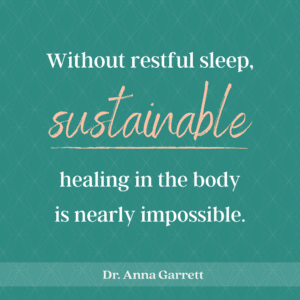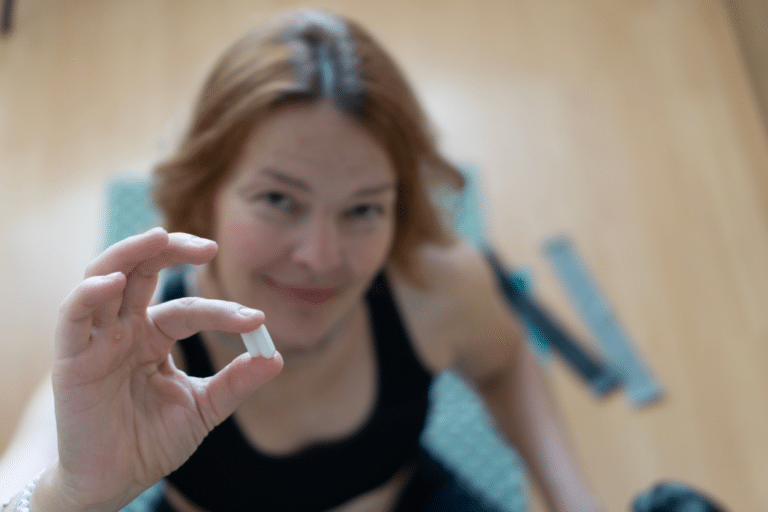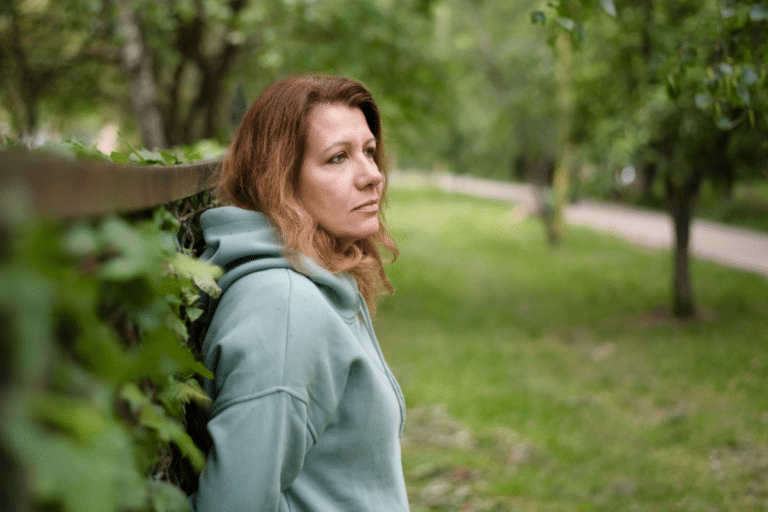A Deeper Dive into Insomnia in Perimenopause
We fall asleep largely due to the gifts of the pineal gland, a small ant-sized lobe near the middle of our brain. This gland secretes melatonin. Melatonin suppresses the activity of other neurotransmitters and helps to calm the brain (in part by countering the stress hormone cortisol).
For ideal sleep, melatonin should rise steadily and cortisol should be rock-bottom low at bedtime. But there’s a catch: the pineal gland secretes melatonin largely in response to darkness. And our evening cortisol levels are lowest in environments with low noise.
With our addictions to TV, video games, email, and social media in the evening, however, our choices can get in the way of these natural pro-sleep chemical shifts. These devices mostly display full-spectrum light, which can confuse the brain about whether it’s nighttime or not.
As I discussed last week, sleep hygiene is foundational to managing insomnia. You can read more about that here. You may be amazed at how often this is all you need to get better sleep.
There are many cases, however, where pro-sleep behavior is not enough. For some of us, our brains cannot make enough melatonin to ensure solid sleep all night long. Or there is a chemical imbalance preventing sufficient relaxation.
Let’s Take a Look at These Particular Insomnia Scenarios:
If you have trouble falling asleep…
Consider 300mcg or 1mg of melatonin taken 30 minutes before bedtime (start with the lowest dose for several days before increasing, as this is often enough; taking too much will result in grogginess the following day). This method is safe and effective for short-term use.
Note that melatonin also helps reduce blood pressure during the night, which is a benefit for women with hypertension. Use of beta-blocker medications or frequent use of NSAIDs (Aleve, ibuprofen) may deplete melatonin and cause sleep difficulties. If melatonin doesn’t help, then there may be a different imbalance at play. Please read on.
If you fall asleep fine but awaken in the middle of the night and cannot easily go back to sleep…
Your problem is likely an insufficient, steady supply of melatonin throughout the night. Taking regular melatonin before bed may not help much.
Instead, consider sustained release melatonin or 100-200mg of 5-HTP (5-hydroxytryptophan) before bed. The body makes melatonin from a neurotransmitter called serotonin. Serotonin synthesis requires the amino acid tryptophan. Tryptophan may be lower in those with inadequate protein intake or those with ongoing infectious challenges. 5-HTP is a precursor to serotonin that can be converted to melatonin a few hours later. A steady flow of melatonin will help you sleep more deeply, soundly, and without interruption.
Note: do not take 5-HTP if you are taking an SSRI or SNRI (or other serotonin-enhancing) antidepressant or sleep medications.
If you have trouble with overnight “hot flashes”…
The cause is usually abnormal cortisol rhythms. Flashes occurring in the later hours of the night (e.g., 2-4 am) are usually associated with high cortisol, which rises to meet the day early and aggressively. This shows that the body has learned to expect very stressful circumstances. Significant, sustainable stress relief is key. Nighttime intake of calming adaptogenic herbs can often be helpful (e.g., holy basil, ashwagandha, magnolia, l-theanine, e.g., Xymogen’s “CortiSolv”).
On the other hand, hot flashes that occur earlier in the night, especially when associated with hunger, might be due to low cortisol and, thus, low blood sugar overnight during the natural fasting window that occurs then. The flash is due to a surge of epinephrine to force blood sugar back up to an acceptable level. A bedtime snack that includes some carbohydrates and healthy fat might be helpful in the short term (e.g., apple with almond butter).
If you have trouble getting stressful thoughts out of your mind at bedtime or cannot sleep due to pain…
This is often because of an imbalance of neurotransmitters in the brain (specifically glutamate and GABA). You’ll likely benefit from taking calming herbs one to two hours before bedtime. Many blends are available, and I recommend an ashwagandha and/or holy basil anchored formula such as this.
Our busy lives tend to create glutamate-dominant dynamics, challenging the brain to calm down and allow sleep. The conversion of glutamate to GABA requires magnesium and Vitamin B6. L-theanine can also help to increase GABA activity.
If you have trouble sleeping after having an alcoholic beverage(s) in the evening…
This insomnia is usually because alcohol interferes with GABA/glutamate balance in the middle of the night. Initially, alcohol increases GABA (inhibitory) and blocks glutamate (stimulatory). Once the alcohol is metabolized and its effects wear off, however, there is a rebound effect that increases glutamate which wakes you up and makes sleep light, and/or interrupted the rest of the night. Taurine is an amino acid that acts in the brain as a calming neurotransmitter and may be taken at bedtime to ease and reduce the rebound effect. Taurine increases GABA receptor binding and thus promotes an inhibitory state. Or….you could just skip the booze!
 Make Restful Sleep a Priority
Make Restful Sleep a Priority
Without restful sleep, sustainable healing in the body is nearly impossible. Plus, it can be challenging for any of us to consider lifestyle changes when we are exhausted, especially chronically, due to poor sleep. Consistent, deep, sustained sleep is a seemingly simple, not-so-sexy, but scientifically anchored priority for getting and staying well.
Dr. Anna Garrett is a menopause expert and Doctor of Pharmacy. She helps women who are struggling with symptoms of perimenopause and menopause find natural hormone balancing solutions so they can rock their mojo through midlife and beyond. Dr. Anna is the author of Perimenopause: The Savvy Sister’s Guide to Hormone Harmony. Order your copy at www.perimenopausebook.com.
Dr. Anna is available for 1-1 consultation. Find out more at www.drannagarrett.com/lets-talk




